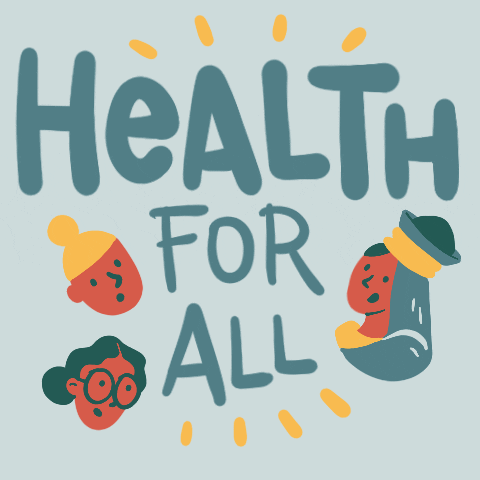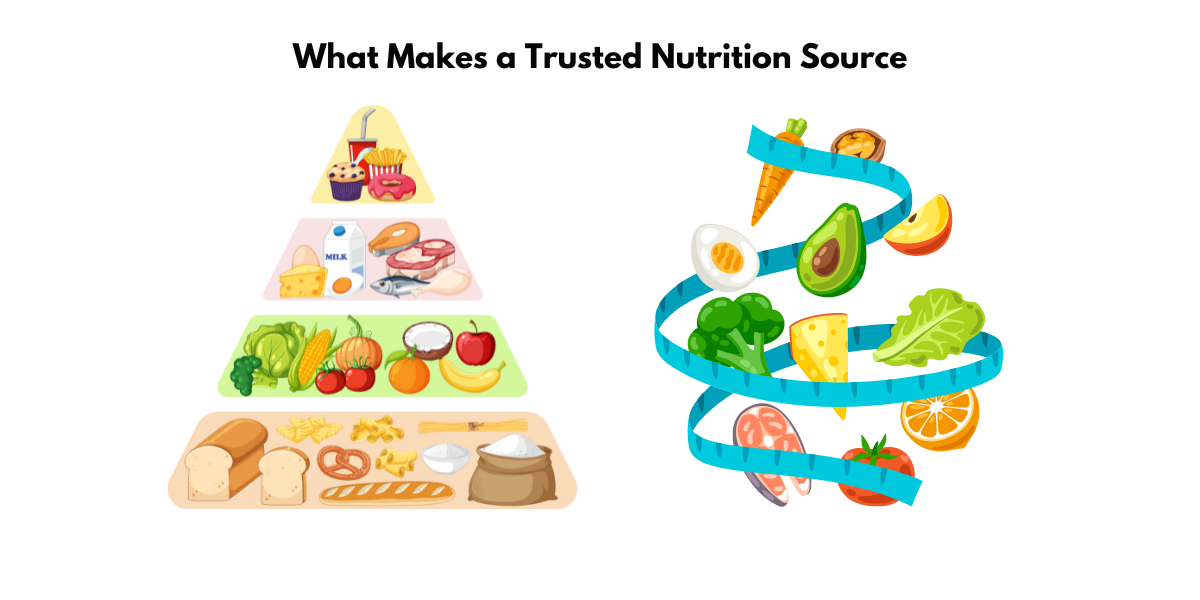Optimal Health: Your Go-To Wellness and Nutrition Source Comprehensive Guide
Nourishing Knowledge: An Introduction
The Harvard Stamp on Nutrition Guidance
When it comes to reliable nutrition advice, few endorsements carry more weight than a nod from Harvard. The prestigious institution stands behind The Nutrition Source, a fountain of insights aimed at fostering healthy eating patterns. Recognized by the American Heart Association for its influential studies on eating habits and cardiovascular health, Harvard’s dietary guidance is at the forefront of nutrition science.
What Makes a Trusted Nutrition Source
A trusted nutrition source stands out for its commitment to science-based information, free from commercial bias. It’s characterized by transparency in its funding and associations, ensuring that the guidance provided is not influenced by industry interests. Content rigorously reviewed by qualified experts in dietetics and nutrition adds to this trust. Moreover, a reliable source stays updated with the latest research and health guidelines, embodying continuous learning and adaptation in a field that’s always evolving.

Core Principles of a Healthy Diet
Balanced Eating According to Harvard Experts
Harvard experts propose a well-rounded approach to nutrition, encapsulated in their Healthy Eating Plate model. This visual guide encourages a balance of vegetables, fruits, whole grains, healthy proteins, and fats while recommending water as the drink of choice. It emphasizes the quality of foods, such as the importance of selecting whole grains over refined ones and choosing fish, poultry, beans, and nuts for proteins. The model serves as a blueprint for creating satisfying, nutrient-rich meals tailored to individual needs and preferences.
Essential Nutrients and Where to Find Them
Essential nutrients are the cornerstone of a healthy diet, and knowing where to find them ensures you replenish your body adequately. Let’s spotlight a few key players:
- Carbohydrates: Choose complex carbs found in whole grains, vegetables, and fruits rather than simple sugars.
- Protein: Go for a variety, including plant-based sources like legumes and nuts, and lean animal proteins such as fish and poultry.
- Fats and Cholesterol: Focus on unsaturated fats from sources like olive oil, nuts, and avocados, and limit saturated and trans fats.
- Vitamins and Minerals: A colorful array of fruits and vegetables will provide a broad spectrum, while dairy or fortified alternatives are great for calcium and vitamin D.
Remember, the type of nutrient-rich foods you select can make a significant difference in your overall health.
Dietary Recommendations Across Life Stages
Nutrition Tips for Every Age Group
Each stage of life calls for specific nutrition strategies to maintain optimal health:
- Infants: Breast milk or formula provides crucial nutrients for growth and development.
- Children: A diet rich in calcium and vitamin D supports strong bones, while iron fosters cognitive development.
- Adolescents: Increased needs for protein, iron, and calories support growth spurts and hormonal changes.
- Adults: A focus on nutrient-dense foods aids in maintaining energy and preventing chronic diseases.
- Seniors: Higher needs for calcium, vitamin D, and B12 support bone health and cognitive function as the body ages.
Remember, the key is to adjust your intake and focus on relevant nutrients as you transition through life’s stages.
Special Considerations for Key Demographic Segments
Navigating nutrition can be unique for different segments of the population. Here are some tailored considerations:
- Pregnancy and Breastfeeding: An increase in certain nutrients like folic acid, iron, and calcium is critical for supporting the development of the baby and the health of the mother.
- Vegetarians and Vegans: These diets need to be well-planned to include sources of vitamin B12, iron, calcium, and omega-3 fatty acids which are commonly found in animal products.
- Athletes: They may require more protein, electrolytes, and carbohydrates to fuel their physical activity and aid in recovery.
- Individuals with Food Allergies or Intolerances: Must navigate their diets carefully to avoid allergens while also meeting their nutritional needs.
- Older Adults: May need more fiber, vitamin D, and hydration due to changes in digestion and nutrient absorption.
Tailoring your diet to address these specific considerations is vital for staying healthy and active throughout all phases of life.

Unpacking The Research
Latest Findings from Harvard’s Nutrition Studies
Harvard’s latest nutrition studies continue to shape our understanding of healthy eating. Building on the Healthy Eating Plate model, recent research delves into diet patterns that promote longevity and reduce the risk of chronic diseases. Key findings highlight the benefits of plant-based diets rich in diverse vegetables, fruits, whole grains, nuts, and legumes, combined with moderate consumption of lean proteins. These studies underline the impact of diet quality over calorie counting and suggest that sustainable dietary habits are integral for both personal health and disease prevention.
How Science Shapes Dietary Guidelines
Scientific research is the backbone of dietary guidelines, ensuring they are evidence-based. Multidisciplinary studies look at the long-term health impacts of certain foods and nutrients, which then inform recommendations. Harvard, for instance, leverages extensive epidemiological research to discern patterns and causes of health outcomes. Through such empirical evidence, dietary guidelines evolve to reflect the latest understandings of nutrition and health, providing the public with actionable and up-to-date advice for a healthy lifestyle.

Addressing Popular Nutrition Myths
Demystifying Food Fads with Scientific Evidence
In a world brimming with trendy diets and superfood claims, scientific evidence acts as a beacon of truth. Harvard experts scrutinize popular food fads, separating fact from fiction. For instance, while detox diets are a buzzword, research shows that the body’s natural detoxification systems are usually sufficient. Similarly, while coconut oil is often hailed as a cure-all, evidence suggests it should be consumed in moderation due to its high saturated fat content. Trustworthy sources lead the way in clarifying these misconceptions, advocating for well-rounded diets over miracle foods.
Controversies in Nutrition Decoded by Professionals
Nutritional controversies can leave you scratching your head, wondering what to believe. That’s where professionals step in. They parse through the contradictions and controversies that arise from conflicting study results or misinterpreted data. Experts provide context, explain the nuances of research methodologies, and discuss the quality of evidence, which enables informed decisions. For example, debates around the health impacts of red meat consumption are addressed by professionals who consider the balance of risks and benefits, looking at individual dietary patterns and overall lifestyle.
Sustainable Eating for Personal and Planetary Health
Elevate Your Plate with Eco-Friendly Choices
You have the power to make a positive impact on the environment with every meal. Choosing local and seasonal produce reduces transportation emissions and supports local agriculture. Incorporating more plant-based meals can conserve water and land resources significantly, considering the high environmental costs of livestock. Reducing food waste by planning meals and using leftovers smartly also lessens the ecological footprint. Every eco-friendly choice you make in your diet contributes to a healthier planet.
The Connection Between Diet, Health, and Environment
The choices you make at the dinner table do more than just affect your waistline; they have profound implications for the planet. A “planetary health diet,” for instance, aims to balance the nutritional needs of a growing global population with environmental sustainability. By shifting towards more plant-based foods, we can reduce greenhouse gases, prevent biodiversity loss, and preserve water resources—all while fostering our health. Furthermore, understanding that food production and consumption patterns are inextricably linked to climatic changes encourages a more holistic view of diet.

Practical Advice for Everyday Wellness
Mindful Eating Strategies from the Experts
Mindful eating is a transformative approach that intertwines the practice of mindfulness with your eating habits. To embark on this journey, start by tuning into your body’s hunger signals rather than eating out of habit or emotion. Savor each bite, appreciating the flavors and textures of your food, which can lead to greater satisfaction with smaller portions. Experts also suggest minimizing distractions during meals, encouraging a focus on the act of eating itself. Adopting these strategies can enhance your relationship with food, leading to more enjoyment and often, healthier choices.
Incorporating Nutrition into Lifestyle for Longevity
Achieving longevity is about more than just what you eat—it’s how you weave nutrition into a lifestyle. Adopt regular, balanced meals and snacks to maintain energy levels throughout the day. Staying hydrated is equally important; water is essential for every bodily function. Exercise should complement your dietary habits, as it increases metabolism and muscle mass, which in turn can affect how your body processes nutrients. Additionally, ensure that sleep and stress management are prioritized, as they can have powerful effects on hunger hormones and overall health. By syncing these elements, you not only live longer but also enhance the quality of your life.
The Future of Nutrition and Health
Emerging Trends in Nutritional Science
Nutritional science is constantly evolving, and recent trends focus on personalized nutrition and the gut microbiome’s impact on health. Advancements in genetic testing are paving the way for diets tailored to individual genetic profiles, potentially maximizing health benefits and disease prevention. Additionally, the burgeoning field of nutrigenomics investigates how food components affect gene expression. As for the gut microbiome, emerging research suggests that its composition can influence everything from immune function to mental health, opening new frontiers for customized dietary interventions aimed at optimizing gut health.
Anticipating Changes in Public Health Guidelines
As nutritional science advances, public health guidelines are expected to incorporate new evidence and paradigms. Future directions may further explore the relationship between nutrition and chronic disease management, mental health, and the role of technology in dietary assessments. Anticipate more nuanced guidelines that could offer greater individualization based on genetic makeup, lifestyle factors, and ecological considerations. This kind of adaptability ensures public health advice remains as beneficial and relevant as possible for a diverse population with varying needs.

FAQ: Expert Health Tips from a Harvard-Backed Nutrition Source
What are the Five Top Dietary Recommendations from Harvard Nutritionists?
- Load up on plants: Fill half your plate with vegetables and fruits, embracing variety for a vast nutrient profile.
- Opt for whole grains: Choose whole grains over refined ones for better nutrient retention and digestion.
- Choose healthy proteins: Select seafood, lean meats, poultry, beans, and nuts; limit red and processed meats.
- Healthy oils are a must: Incorporate plant oils like olive and canola in place of animal fats for heart health.
- Stay hydrated with water: Water, tea, or coffee, with minimal sugar, should be your go-to beverage.
These recommendations aim to promote overall health and well-being while preventing chronic diseases.
How Does Harvard Research Influence Global Eating Habits?
Harvard’s research influences global eating habits by providing evidence-based findings that form the basis of dietary guidelines worldwide. Their extensive studies on nutrition and health outcomes shape public policies and educational campaigns, guiding individuals toward healthier food choices. By setting examples of best practices in nutrition, Harvard’s work also inspires global food industry standards and informs the development of products aligned with healthful eating patterns, thus impacting what consumers encounter in the marketplace.
What is Considered the Best Sustainable Diet Practice Today?
The best sustainable diet practice today is widely considered to be a predominantly plant-based diet that includes a vast array of vegetables, fruits, whole grains, legumes, nuts, and seeds, with minimal animal products. This approach supports environmental sustainability by reducing greenhouse gas emissions, preserving water and land resources, and minimizing the ecological footprint associated with food production. Embracing local and seasonal foods whenever possible further enhances this practice by cutting down on transportation and promoting biodiversity.
Where Can Individuals Find Harvard-Endorsed Nutrition Information?
Individuals can find Harvard-endorsed nutrition information at The Nutrition Source website, which is managed by the Department of Nutrition at the Harvard T.H. Chan School of Public Health. This online resource offers comprehensive nutrition information, including articles, healthy recipes, and tools like The Healthy Eating Plate, to help translate complex science into actionable dietary practices. It’s an accessible platform for anyone seeking to make informed choices about their diet and health.
- Optimal Health: Your Go-To Wellness and Nutrition Source Comprehensive Guide - August 29, 2024
- How to Set Healthy and Effective Goals for Your Mental Health Treatment - December 18, 2023


